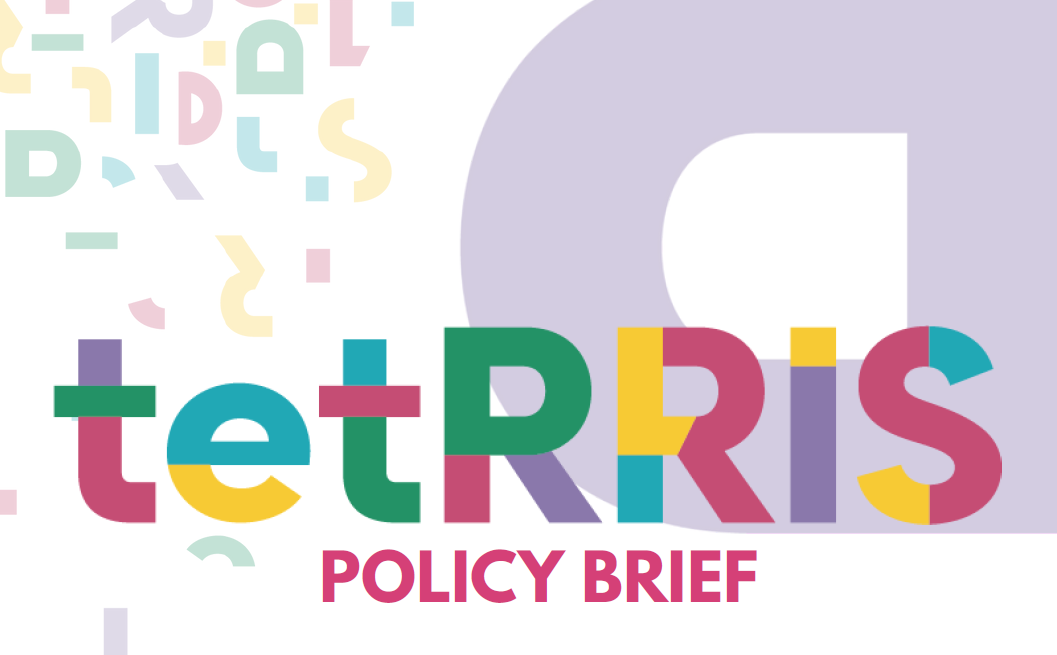RRI (Responsible Research and Innovation) is a concept that the European Commission has widely promoted in its research initiatives over the past decade, and yet, it flies under the radar as another abstract EU jargony term. We get it: RRI is a fluffy acronym which hides the essential ideas it stands for.
So, our somewhat paradoxical, advice here is: if you want to talk about and promote the implementation of RRI, do not talk about RRI!
Many organisations out there already implement RRI principles without knowing it, or rather without calling it such. Hence, there might not be a need to focus on RRI as an idea but rather on what it entails, highlighting existing practices and extending its potential.
Focus on the ‘what’
Communicating with and convincing the media, businesses and other stakeholders is not only essential to a general understanding of scientific research, but it should also be the core of research and innovation (R&I). We encourage you to invite your audience to think about cross-cutting principles that should be part of the innovation process – and not as an afterthought! These issues are familiar: ethics, education, gender equality, open access, governance, and public engagement. There are other aspects of RRI that are known scientific principles which are worth refocusing on including anticipation, reflection, openness & transparency, responsiveness, and inclusion.
Currently, RRI “in practice” is closely connected to social and environmental sustainability, technology ethics, and corporate social responsibility (CSR). For instance, the discussion about ethics in AI includes a number of aspects which can be found in the RRI principles, albeit not named as RRI ones, such as anticipation or transparency. Principles of inclusion and diversity are further examples of widely spread concepts that are covered by RRI. It is by using known principles such as these that you can be better understood.
Naturally, not all the aspects of RRI are equally important in every context, but you should be able to identify and discuss what are the most relevant ones in each case. Importantly, there are usually various societal values involved, and trade-offs may also be needed between contradictory values.
Tell a story!
Picture a science lab. Do you imagine more women or men working in it? Are they old or young? Are they engaging end-users of their product? Are they imagining all the types of impact it may have on society?
With these kinds of questions, you will raise awareness of the potential cumulative unforeseen effects that new technologies can have and help your audience to think ahead. You will also encourage your listeners to reflect on the deep interrelation between R&I and society – the driving idea behind the emergence of “RRI” as a concept. By telling a story or asking simple questions, you can concretely show that these relations are immensely complex, and that R&I has an impact on not only researchers and their funders, but also policymakers and citizens.
Stories have tremendous power. Organisations change as the stories we tell of them change. These stories and what they say about organisational values and practices influence us. So, what if we changed these stories so that ethical considerations and inclusive practices become essential parts of organisational self-understanding? In doing so, we would be able to change practices towards more responsible ones.
Deconstructing Bias in Research
It is often difficult to understand one’s own biases and preconceptions about a subject of research. There is growing evidence that making research more transparent and its results more replicable will actually improve the quality of the research itself and its accessibility to a larger audience. As a result, the correction of potential mistakes becomes easier, and the acceptability of innovations is more likely as their impacts have been discussed beforehand.
With this type of evidence, you can then encourage businesses and research teams to adopt active transparency and reflective internal procedures, foster stakeholder engagement, and take into consideration public opinion about the direction chosen for the research. And, by doing that, you would be promoting RRI principles without calling it as such!
Keen to see a full story of applied RRI that does not talk jargon? Click & watch here.
And for our tips on how to apply RRI principles at a regional level, check out the TETRRIS project website here.
Hits: 404





0 Comments